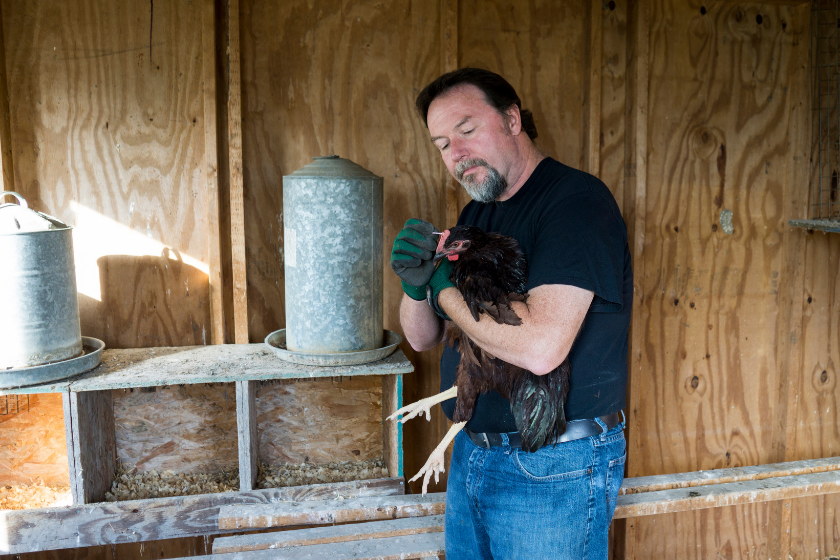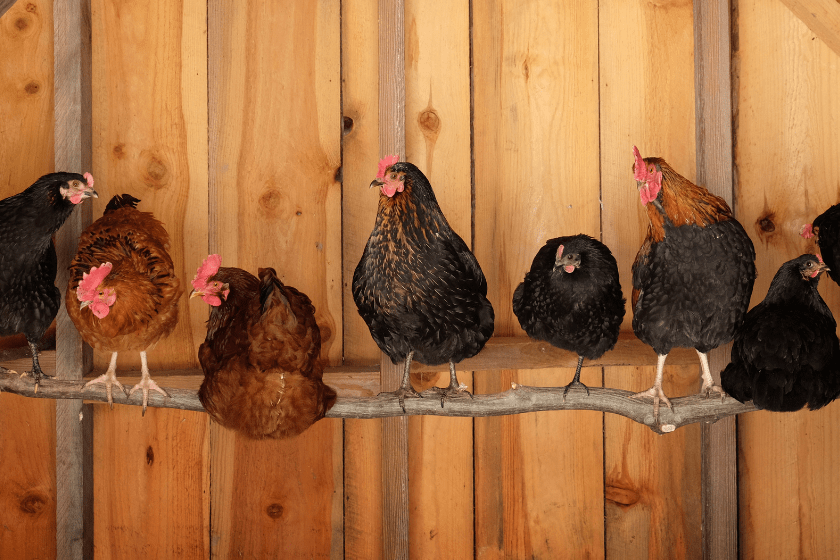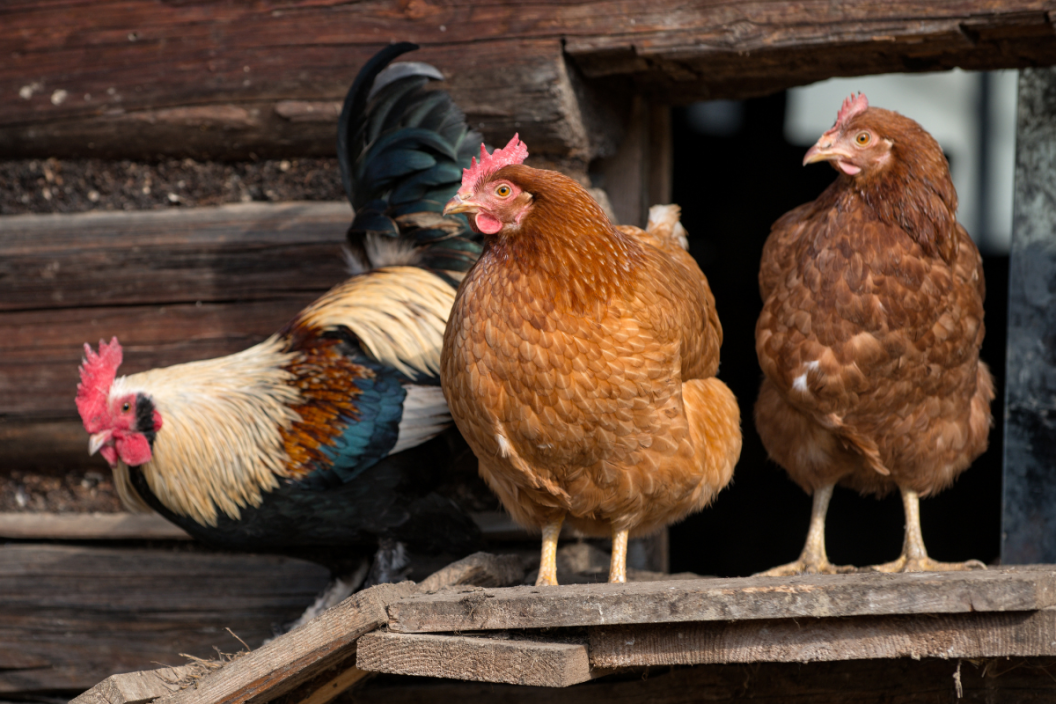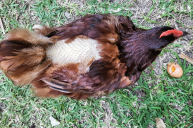Do your chickens sleep in their nesting box? Here are 7 reasons why this happens and how to stop this unwanted behavior.
A common complaint from backyard chicken owners is that their chickens sleep in nest boxes instead of on roosts.
Why is this a problem? It's usually because the nest boxes get really dirty when chickens use them as a roost. You can get clean eggs, of course, but it's a lot easier if chickens aren't sleeping in their nesting box. Chickens poop a lot (and we mean A LOT) when they roost for the night. If you have one or more chickens that use a nest box for sleeping, they will get quite dirty very quickly.
Ideally, you want to use a checklist to design your chicken coop so that your chickens sleep on their roosts instead of in their nest box. There are different explanations for why your chickens may be going to their nesting box at night, but we explore seven possible reasons here:
1. Nest Box Height

The first, and main, reason why chickens sleep in nesting boxes is the nest box is higher than the roost. Chickens will try to roost for the night at the highest place possible in the coop. If your nest box is higher than your roost bars, your chickens will try to claim it as a sleeping spot. If it's on the same level, it may also look attractive as a roosting spot. The fix? Make the nest box a less attractive roosting spot by positioning it lower than the roosting bars. If the roosting bars are the highest spot in the coop for chickens to hang out, that's where they'll want to sleep for the night.
2. Mites
The second reason chickens might opt for a nest box instead of the roost is that your coop has mites. Mites such as the northern fowl mite will hide out of sight during the day in cracks and crevices, such as at the end of roosts where they meet the wall. When darkness falls, these hungry mites come out and feed on your chickens. Mites can make chickens so uncomfortable that they'll avoid the roosts.
Check for mites by lifting out your roost bars during the daytime and looking at the ends. If they are fixed in place, take a white plastic disposable knife or paint scraper and poke around in the cracks and crevices near roosts in your coop. If you have fowl mites, you will see red streaks on the white plastic when the mites are disturbed or smushed. You can also check for crawling mites on the roost bars with a flashlight after dark, or check the chickens themselves, particularly near the vent area.
3. Injury

The third reason chickens might opt for a nest box is a foot injury that makes perching on a roost uncomfortable. Check for cuts, infection, bumblefoot, splinters, frostbite, and other illness. An ill chicken may avoid getting jostled looking for a roosting spot or may be physically unable to get up onto a roost. A ramp may help give an ill chicken easier access to the roost.
4. Wrong Size or Type of Roost
The fourth reason chickens may avoid the roosting bars is because they aren't the right size or shape for comfort. Not sure what good roosts are made of or how big they are? Here's a great guide. Cold weather can also affect your chicken coop, so be sure to prepare your coop for the winter.
5. Broody Hens

The fifth reason a hen might sleep in a nest box is that she's broody. A broody hen picks a nesting spot, and it makes sense for her to choose a nest box! Sometimes it makes sense to let your broody hen hatch her eggs, but many farmers use other methods to coax their broody hens out of the nest box. Here's how to stop a broody hen if you're having a bit of trouble.
6. Cleaning and Ventilation Problems
The sixth reason is your coop might need a good cleaning or more ventilation (or both). If you smell ammonia and your coop isn't a pleasant place to take a deep breath, your chickens aren't going to be comfortable either. Ammonia fumes over a roosting area might be stronger, so chickens may opt for a nest box instead. Be sure to keep things clean and make sure there is enough ventilation in the coop. This means cleaning out all the nesting materials and pine shavings, etc. on a regular basis — especially if you have new chickens coming! If you want even more ventilation, you can opt for an open air coop.
7. Age

Finally, the seventh reason your chickens may be choosing nest boxes is their age. Older chickens may find it hard to get onto a roost, or it may be that they're still kind of young. It can take a while for younger chickens to get used to the idea of roosts. With some time, they should come around, since it's natural for chickens to seek out a higher spot to sleep for the night. It's also a good idea to put some sticks or perches in the brooder box when they are about two or three weeks old to introduce the concept early.
Staff note: Silkies don't love to roost though so they may sleep on the floor of the coop! Our Silkie sleeps in a box and I'm O.K. with it as it's safer than on the coop floor!
Where do your chickens roost? Let us know on the Wide Open Pets Facebook page!
This article was originally published June 17, 2019.




